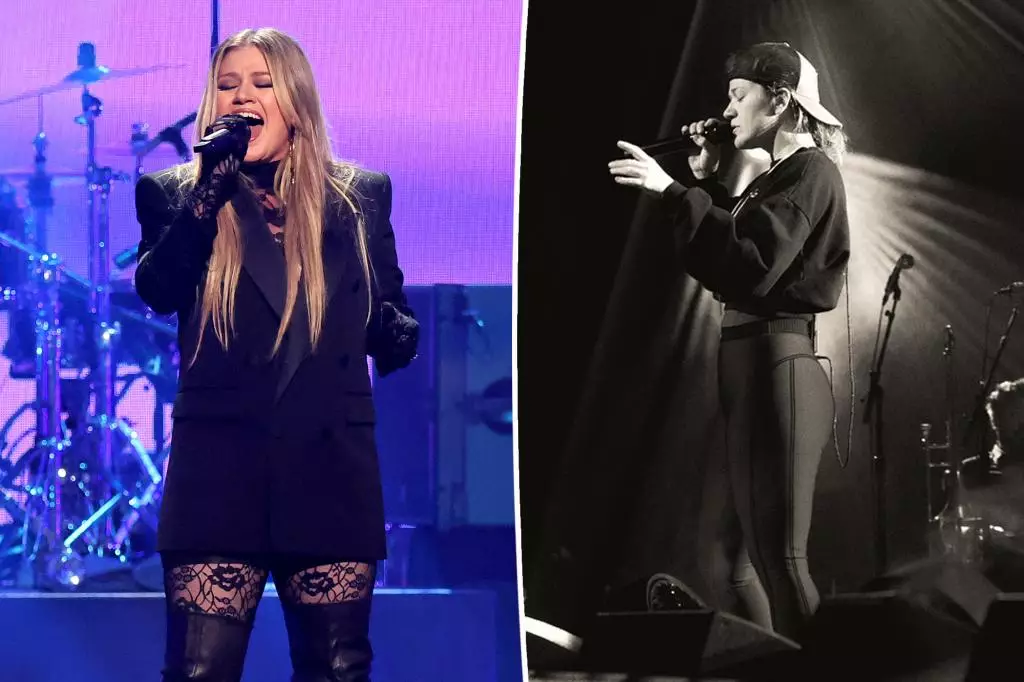In today’s fast-paced and highly connected world, celebrity culture has shifted from admiration to near-constant scrutiny. Fans expect perfection, immediate gratification, and unwavering transparency from their favorite artists. When Kelly Clarkson abruptly postponed her Las Vegas residency performance just 90 minutes before showtime, it not only disappointed her audience but also spotlighted the complex realities behind the glitz and glam. While fans may feel betrayed and justify refunds or compensation, this incident raises broader questions about the relentless pressure on performers to deliver perfect entertainment under often impossible circumstances. It exposes the fragile balance artists must maintain between their physical health, mental wellbeing, and their obligation to fans.
The Sacrifices Behind the Spotlight
Clarkson’s candid explanation on Instagram reveals a key aspect often hidden from public view: the toll performing takes on vocal health and overall wellbeing. The singer emphasized that her demanding rehearsal schedule and preparations compromised her voice, prompting her to prioritize health over immediate performance. This honesty sparks a necessary narrative shift: artists are not machines; they are human beings susceptible to exhaustion and injury. However, society’s expectations—especially from fans eager for entertainment—often dismiss these realities as selfish or unprofessional. Clarkson’s decision, though frustrating in the short term, underscores an essential truth—long-term health should never be sacrificed for temporary applause.
The Role of Fans and Industry Responsibilities
The public response to Clarkson’s last-minute cancellation reveals a crucial tension: fans desire uninterrupted access to their idols, yet often overlook the systematic shortcomings within the music industry. Many listeners called for financial repercussions or insurance policies for canceled shows, reflecting an awareness that the current system favors artists and promoters while leaving fans vulnerable. This disconnect demonstrates a need for more comprehensive protections for concertgoers—policies that could mitigate the financial and emotional distress caused by sudden cancellations. Artists, on their side, should adopt a more transparent communication approach, recognizing their influence and responsibility in managing expectations, especially when health issues arise unexpectedly.
Balancing Artistry and Authenticity
What Clarkson’s incident exemplifies is the broader importance of authenticity in an era driven by social media pressure. Artists who openly share their struggles and prioritize their health foster a more genuine connection with fans. The narrative shifts from veneration of infallibility to admiration of resilience. This honesty can deepen the relationship between creator and supporter, emphasizing that greatness is not the absence of flaws but the courage to confront and communicate one’s limitations. Clarkson’s willingness to postpone and explain her reasons suggests a level of integrity that could serve as a model for others in the industry.
The Burden of Double Lives
A layered issue underlying Clarkson’s situation is her juggling of multiple identities—artist, television host, wife, mother, and individual. The stress of managing these roles exacerbates the physical and emotional exhaustion evident in her decision to cancel. It’s a stark reminder that the relentless demands placed on modern celebrities are unsustainable without acknowledgment and support. Industry norms should evolve to foster environments that prioritize artist wellbeing over relentless productivity. Only then can performers truly thrive without risking burnout or damage to their careers and health.
Implications for the Future of Live Entertainment
Ultimately, Clarkson’s cancellation, while disappointing, highlights an impending need for systemic change within the entertainment industry. It calls for a shift toward greater accountability—not just from artists who must protect themselves but also from producers, venues, and fans who must accept that health and authenticity are paramount. The future of live entertainment depends on embedding resilience, transparency, and empathy into its core. When performers are encouraged to prioritize their wellbeing, audiences will invariably benefit from more genuine, sustainable artistry.
By critically examining Clarkson’s incident, it becomes evident that resilience and responsibility are vital not only for individual artists but for the cultural fabric of the industry itself. This episode should serve as a catalyst for ongoing conversations about health, human limits, and ethical responsibilities that define the true essence of artistic greatness.

